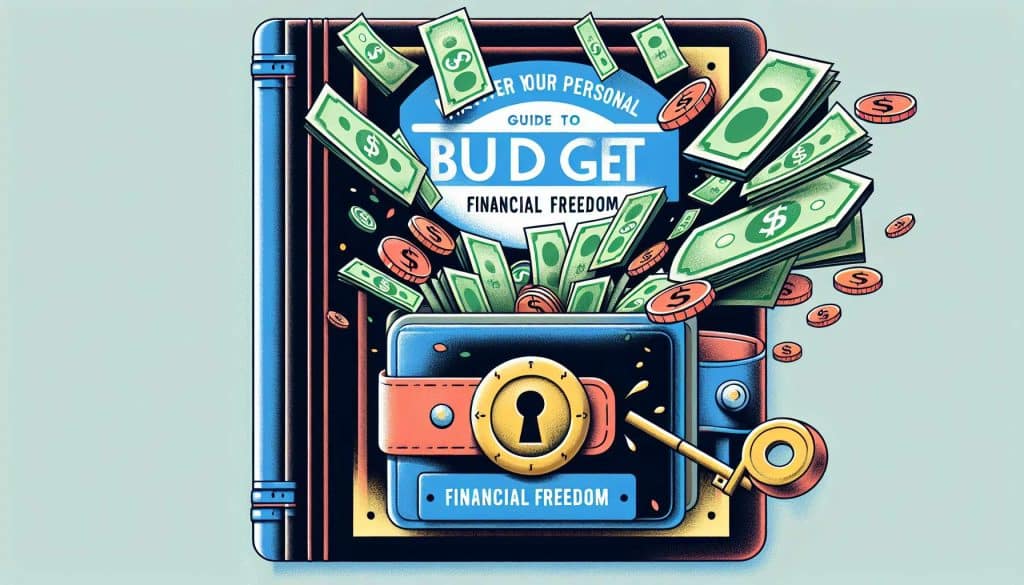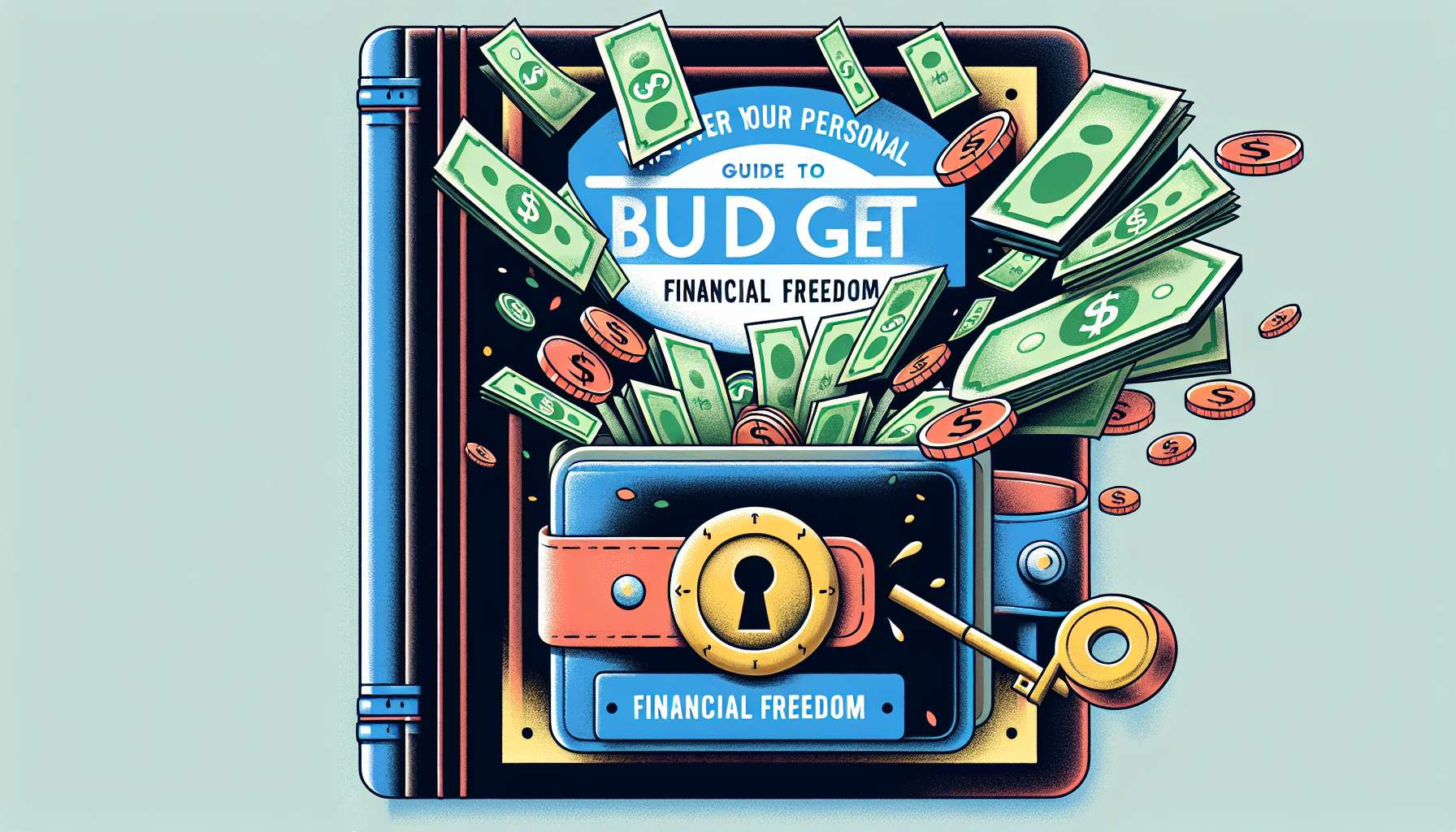Master Your Personal Budget: A Roadmap to Financial Freedom


Introduction
In our rapidly evolving world, effectively managing personal finances is more vital than ever before. Rising costs of living and economic unpredictability make having a solid budget essential for achieving financial stability and freedom. Despite its importance, creating a budget can seem overwhelming, particularly for beginners. This guide intends to simplify the process, providing practical advice and insights to help you navigate personal budgeting.
Anúncios
Many people aspire to save for unforeseen circumstances, reduce debt, or invest in future aspirations. The starting point to reaching these financial goals is understanding and implementing a personal budget. Learning the nuances of budgeting can propel you towards achieving financial independence. Once mastered, personal budgeting can transform your financial landscape, allowing you to make informed decisions regarding your money.
A personal budget serves as more than a mere list of income and expenses. It is a strategic tool that grants you control over your financial future. By detailing revenues and expenditures, you can comprehend spending patterns and identify savings opportunities. Prioritizing expenses and avoiding unnecessary debt becomes attainable with a budget’s insights, preventing the cycle of living paycheck to paycheck.
Personal Budgeting Overview
To embark on your budgeting journey, the initial step involves assessing your financial circumstances. Gather all financial statements like bank and credit card statements, and calculate your total monthly income. Next, categorize your monthly expenses into fixed and variable groups. Recognizing these aspects helps formulate a detailed financial picture necessary for effective budgeting.
Setting explicit financial goals is paramount to successful budgeting. Define what you aim to achieve in both short-term and long-term contexts. Goals such as debt reduction, vacation savings, or emergency funds can drive motivation to adhere to your budget. By clarifying objectives, you instill purpose and discipline into your financial management strategies.
Armed with knowledge of your income, expenditures, and objectives, proceed to develop your budget. Allocate income to cover fixed and variable expenses, with savings incorporated. Consider applying the popular 50/30/20 rule: assign 50% to needs, 30% to wants, and 20% to savings or debt repayment. This method ensures a balanced approach to spending and saving.
Your budget should be adaptable to changes in your financial situation. Regularly monitor spending to gauge adherence to your budget. Utilize available apps and tools to facilitate tracking. If discrepancies arise, such as overspending, adjust your budget to realign with your goals. Budgeting is a dynamic process that requires consistent attention and modification.
Budget maintenance often stumbles due to common pitfalls. Avoid miscalculating expenses by accounting for irregular outlays like repairs or subscription fees. Maintain balance by allowing leisure expenses to prevent budget fatigue. Also, heed small expenditures, as they can accumulate and disrupt your budget over time. Regularly revising your budget to reflect life changes is crucial.
Characteristics of a Successful Budget
- Clear and realistic financial goals
- Accurate assessment of income and expenses
- Regular tracking and adjusting spending habits
- Inclusion of savings in the budget plan
Benefits of Personal Budgeting
Embarking on a personal budgeting journey offers numerous advantages. Foremost, it provides clarity regarding your spending patterns, revealing areas of excess and potential savings. This awareness enables informed decision-making, optimizing financial resource allocation to meet your objectives. Furthermore, a budget boosts confidence in financial decisions, reducing stress related to money management.
Effective budgeting can significantly reduce debt and accelerate financial recovery. By prioritizing debt repayment within your budget, you can mitigate interest accrual and free up funds for other purposes. Additionally, a budget encourages saving by facilitating timely and consistent contributions to savings accounts, driving progress towards your financial goals and fostering security for unexpected events.
Implementing a budget aligns your spending habits with your core values and long-term aspirations. It empowers you to make conscious choices aligning with what truly matters, creating a fulfilling and intentional lifestyle. Over time, budgeting nurtures fiscal discipline and increases accountability, fostering a strong foundation for sustained financial health.
Despite its structured nature, budgeting promotes financial freedom by minimizing wasteful expenditures and maximizing resource efficiency. It balances discipline with flexibility, allowing for occasional indulgences within financial boundaries. By cultivating mindful spending, you redefine financial autonomy, emphasizing informed and purposeful decisions rather than restrictions.
The journey to mastering personal budgeting is continuous and requires dedication and adaptability. By understanding your financial scenario, setting clear objectives, and developing an evolving plan, control shifts from your finances dictating your life to you steering your financial future. Begin today, commit fully, and watch as your financial landscape adapts, improving overall life quality.
Key points to remember:
- Gaining control over financial decisions
- Facilitating debt reduction and increased savings
- Aligning with long-term values and aspirations
- Promoting informed, purposeful financial choices
- Enhancing overall life quality through financial stability





